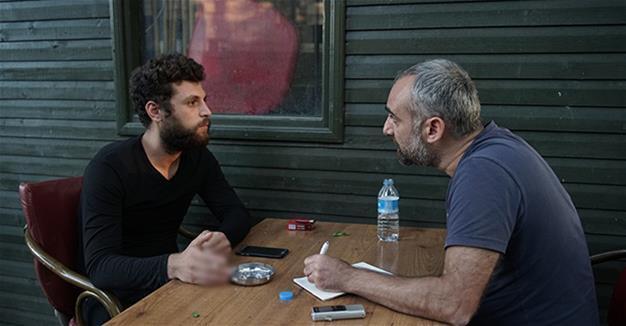Syrian husband of murdered pregnant woman: Killers don’t represent Turkey
İsmail Saymaz – ISTANBUL
 A Syrian man whose pregnant wife was raped and then murdered with his baby in the northwestern province of Sakarya has said the murderers “don’t represent Turkey” and stressed that he is not angry at the country.
A Syrian man whose pregnant wife was raped and then murdered with his baby in the northwestern province of Sakarya has said the murderers “don’t represent Turkey” and stressed that he is not angry at the country.“I wouldn’t have thought that something like this would happen to us in Turkey. If I had thought of it, then I wouldn’t have stayed here for one second ... Why do we live? To protect our dignity,” Khaled al-Rahman told daily Hürriyet on Aug. 28, adding that “Turks have treated me like a brother.”
“I’ve known very nice people. They helped me when I didn’t even have a single lira. I don’t know where the two [killers] came from. They don’t represent Turkey. Turks supported me when I was in hospital [after the incident],” he also said.
Emani al-Rahman, who was nine months pregnant, was kidnapped in Sakarya’s Kaynarca district with her 11-month-old baby Khalef and was taken to the woods before being raped and brutally murdered on July 6. Their funerals were held in Syria’s Idlib and the incident caused widespread fury in Turkey.
Khaled al-Rahman, who was born in Damascus in 1990, served in the Syrian army for five years but was then jailed over “insulting President Bashar al-Assad.”
After serving six months in prison and being subjected to torture, he escaped from the army in 2014 and returned to Idlib, where his family was living. He stayed among rebels for two months and then crossed into Turkey with smugglers.
After working in the southern province of Adana for 30 Turkish Liras a day, he moved to Sakarya to work in a chicken factory. Upon saving enough money, he returned to Idlib to get married in 2015 and the couple crossed into Turkey from the southeastern province of Şanlıurfa.
At the beginning of 2017, al-Rahman moved into an apartment next to the house of Birol Karacal, who is one of the killers and who was working at the same factory.
Al-Rahman said he saw Karacal “as his brother” and helped his family during Ramadan. However, he said the other murderer, identified as Cemal Bay, was a “dirty man” who shouted at and mistreated all workers in the company.
Around a month before the killing, Bay called al-Rahman outside the factory to fight.
“Cemal was constantly shouting. He wasn’t a clean person. I complained about him to the boss and they took him away from me,” he said.
On the day of the murder, al-Rahman said he went to the factory with Karacal on the same bus.
“I saw Cemal Bay sleeping in the seat in the security guard’s room. We entered the dressing room with Birol and he received a phone call. He walked away from me and I don’t what he talked about. The chief came a little while later and asked where Birol was. ‘Maybe he went to the bathroom,’ I said. I then received permission to go home to take my wife to a hospital. There were a couple of days left for her to give birth,” al-Rahman said.
Saying the house was a mess and he was unable to reach his wife, al-Rahman noted that Karacal’s wife came to the house a short while later.
“She said, ‘Don’t cry, maybe she went to a hospital.’ I said, ‘Have you heard anything?’ and she said she hadn’t. I called Birol and asked him where he was. He told me his father was sick and he was looking after him. I called the hospital and Emani wasn’t there,” he added.
Al-Rahman said he went to the police afterwards but was being repeatedly called by Karacal.
“The superintendent got suspicious. Birol and his wife were detained. Birol told the police that he and Cemal went to steal cows. But he had told me that his father was sick. I realized then that he was lying. Later on the police told me about what happened and we went to a hospital. They gave me an injection before showing me the dead bodies of my son and wife. After seeing Emani in that state I fainted, he added.
Al-Rahman alleged that Karacal’s wife also helped in the murders and has complained about the slow pace of the investigation.
















